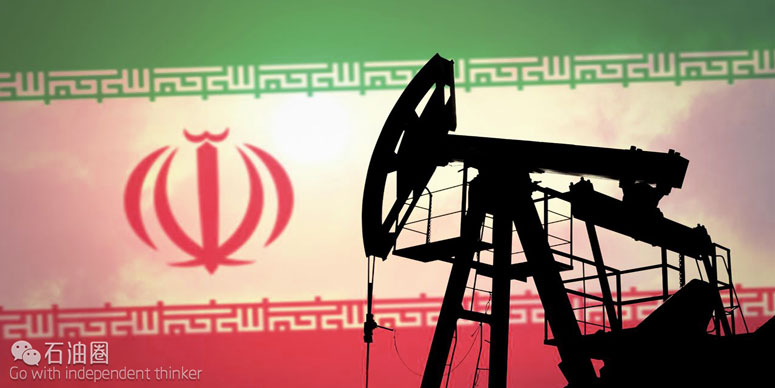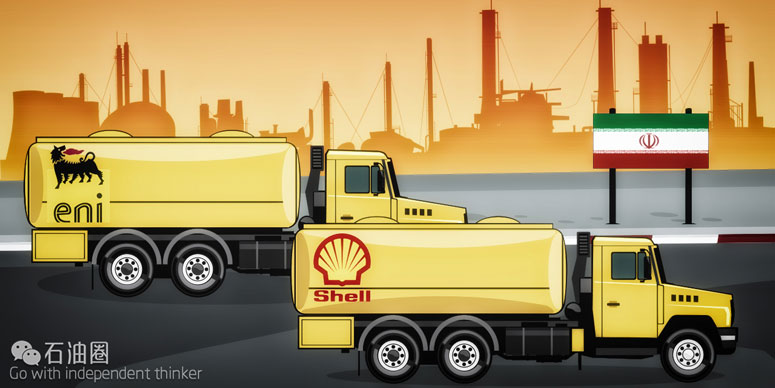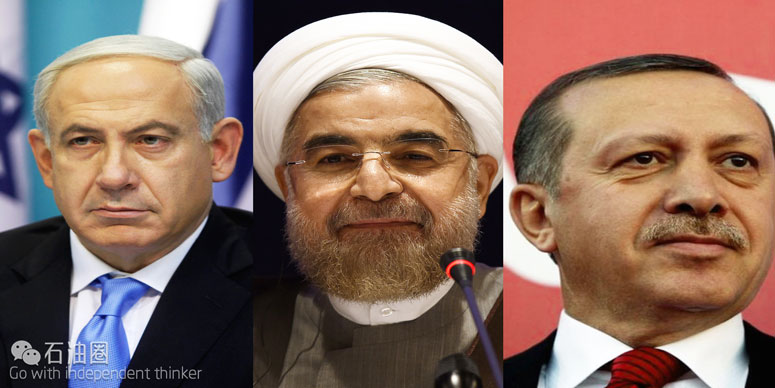Oilprice.com sat down with Middle East oil and energy expert Robin Mills to discuss the potential of Iranian energy and its geopolitical consequences.
OilPrice: Robin, in the first part of our interview you said that Iran wants to increase petroleum production significantly in the next 3-5 years. But for now, they’re near maximum production at 3.6 mmbpd.
Looking a little more closely at Iran, and the role of the oil majors, I assume you’re expecting some major investments from them in the next year.
Robin Mills: I’m expecting some contracts to be concluded in the next year, although that may not quickly lead to large scale investments. It will take time for various reasons. It will take time to negotiate these contracts. It will take time for large companies to actually start work. And it will certainly take time to start seeing impacts in terms of significant increases in production. But it’s not unreasonable to expect to see some significant contracts signed in the next year.
OP: What’s going on now on the ground in Iran? Is it primarily the National Iranian Oil Company (NIOC) leading exploration and production? There are no foreign oil companies there right now, is that correct?
RM: Pretty much. The Chinese are doing a bit of work on field development, but other than that it’s NIOC developing the fields on its own account.
OP: The Iranians have been talking about awarding new contracts, and creating new contracts that are different or more sophisticated than the buy-back contracts that were offered to foreign companies in the past. Do you have a sense of where they might be going on that, in terms of seeking something more in the way of joint ventures or production sharing agreements that are more flexible than the buy-back contracts they used before?
RM: They have the new contract approved by the Ministers, it’s the basis on which they’re going to work. There’s still some drafting and legal work to do on it, but the framework is there and being shared with companies.
OP: Will the Iranians enter into joint ventures?
RM: Well the form of the contract, it’s effectively a service contract, is different from the buy-backs in various ways. Mainly it’s got a longer term involvement of the IOCs in the field development over a 20-year period, and greater flexibility in the plans. It’s not executing a fixed development plan but it’s with annual agreements and annual budgets on the work that’s going to be done. That’s the most important feature. There’s a difference in how the payments are calculated and so on, but the long-term involvement is what the companies have always wanted, which this offers them.
OP: Do you want to speculate about what companies might be most interested in Iran or might be most successful there, any of the big names?
RM: It’s a pretty long list. I think Total and ENI have had projects there in the past, they’re very interested and they’ve said so publicly. Shell also may be a bit more cautious but Shell is certainly in there. BP would probably like to be there. Although they negotiated for projects there back in the late 90s and early 2000s they didn’t secure anything. The Americans obviously will not be on the list for now, that will take a big change in U.S. policy before American companies can engage. You’ll see the Chinese. CNPC and Sinopec both have projects there still running and they’ll look to do more. The Russians, Gazprom and Lukoil probably have a good chance of being involved as well.
Those are most of the big names. Then there are some medium-size European companies that will also throw their hat in the ring. A good chance we’ll see the Japanese. They’re a bit cautious but will probably turn up there as well.
OP: Would there be Chinese capital involved in financing these pipelines, or who would finance these?
RM: The Chinese have offered to finance the Pakistan one. I think the Russians are offering to as well, but the Chinese have got more money. So, yeah, certainly the Pakistan one. About the others I’m not sure.
OP: Is that part of the Chinese ‘Silk Road’ concept?
RM: Yeah, and Pakistan is a key part of that concept, so anything involving Pakistan pipelines and things is a Chinese strategy.
OP: If the Iranians were to exploit their reserves more, if they were able to figure it out economically, could they displace the Azerbaijanis in the supply through Turkey?
RM: I guess theoretically, but you know the Azerbaijan pipeline is well ahead so it’s going to get built, it already is being built so once it’s built it’s likely going to get used. So probably not. It’ll be more about squeezing out LNG because LNG of course can go anywhere. And squeezing out the Russians, and then the Russians would have to decide how aggressive they would be, you know, how much they would choose to compete on price to defend their market.
OP: Right now this discussion is theoretical because the Iranians simply don’t have the production capacity, and it’s going to take quite a long time for them to build that up. Would you agree with that?
RM: Yeah, and the Iranians have a lot of other things to do with their gas domestically. So yes, there will certainly be projects like Pakistan and Oman, they’re just easier, shorter term. So once they’ve done that and met their domestic gas needs as well, then they can take a look and see if they have more gas available, and whether that’s going to go to Europe or somewhere else.
OP: Looking at the big picture, would you say that Iran is one of the winners in the ‘petroleum crisis?’ With the Russians struggling, Venezuela struggling, Nigeria struggling, has the crisis opened opportunities for Iran perhaps, having relative political stability?
RM: Well, they’ve benefitted because their production has been on the up, while others have been on the down or at least not much on the up. So prices might halve but their exports double, so Iran is maybe not much worse off than it was 3 or 4 years ago, whereas everybody else is dramatically worse off. Now of course Iran suffered a lot in the intervening period but at least it’s relatively on the up. And its economy is more diversified than Venezuela or Nigeria. I mean oil is very important but not as important as in those other countries. And I should say, obviously, political stability has been much better than Nigeria or Libya or Venezuela.
OP: Geopolitically, people are talking about some kind of alliance of Iran with Russia, and perhaps even Turkey entering into that. There could be a new alliance of cooperation between the three countries. Do you have any thoughts on that? Could it be something long lasting and something to change the landscape of the region?
RM: It’s interesting. I think there’s still a lot of difference between those countries. You know, the Russian-Turkey relation has been so volatile for the past two years, so I think it could be volatile again, other things could go wrong. And historically Iran has always been a rival of Turkey, and kind of a rival or has been wary of Russia as a big neighbor. So I think that their interests align on certain issues where they can do work together, but I think a systematic alliance is difficult just because there are so many deep differences of interest between them. You know, obviously Russia doesn’t really want Iran competing within the European market or other regional markets for gas and oil.
OP: Now really speculating, say 10 years out in 2026, where will Iran be, assuming no major wars or political instability, Iraq holds together and the Saudis remain stable? Will Iran be the second largest oil supplier and second or third largest gas supplier in the world?
RM: It depends on what happens with Iraq, but I would suspect that Iran would still be behind Russia, the U.S., Saudi Arabia, and probably behind Iraq on oil. So it’ll be the fifth biggest assuming nobody else comes up unexpectedly. And on gas, probably still the third biggest, I don’t see it really overtaking the U.S. and Russia, just because it’ll need markets. Its own domestic market could grow quite a bit but it’s always had problems accessing export markets and they’re not easy to get to, as we discussed. They can get to Pakistan but it’s hard to get to India. It’s hard to get to Europe because they need Turkey. And the LNG market is not great at the moment and won’t be for years. So obviously it’s difficult for Iran to get to markets, while Russia has all of its pipelines to Europe and now to China which are in place and being used. So they’re just much more established. But I think that Iran would be the third biggest gas producer based on its reserves. You can’t really think who else would overtake t
em unless China had a real surge of shale gas, but I don’t think there’s anybody else to overtake Iran in third place.
RM: My pleasure.
By Alan Mammoser for OilPrice.com


 石油圈
石油圈



